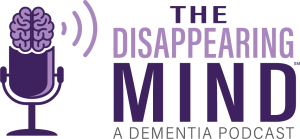Music offers many mental and physical health benefits to older adults. In fact, simply listening to music and learning to play a new instrument are some forms of music therapy for older adults. Music therapy has become increasingly popular within the community, with a rising number of senior living communities turning to this alternative to support the treatment of older adults with various forms of mental conditions such as dementia and depression. Here are some other benefits of music therapy for older adults.
Improves Mental Health and Cognitive Function
Research has found that musical activities such as learning to play a new instrument, listening to music, practicing an instrument, and singing are able to stimulate certain areas of the brain to support blood flow. Activities that involve music help keep the brain active, young, and sharp while slowing down cognitive decline in older adults.
Improves Memory and Focus
Music therapy, particularly when participants are taught how to play an instrument or taught a new song, can help to promote focus and retention of information. Exercises that involve repetition can also help to improve not just muscle memory, but also brain memory.
Improves Communication Skills
It has been found that music therapy can be beneficial for older adults suffering from dementia. The activity helps to slow down the decline of speech skills. Those who are nonverbal will also be inspired by music to express themselves by singing, humming, or moving their hands according to the beat. Participants are also encouraged to showcase their emotions or thoughts through a song or tune, helping them to better communicate with others through music.
Reduces Depression
Music therapy has been found to have a substantial effect in reducing symptoms of depression among older adults who have the illness. Studies have found that through music therapy, there has been a notable effect in patients with depression with a significant reduction in their symptoms. Music learning such as playing an instrument is also effective in enhancing mood and improving self-esteem. It is an enjoyable activity that provides a sense of satisfaction and achievement that can come from learning an instrument which in turn positively impacts the well-being of older adults.
Reduces Anxiety and Stress
Music therapy is usually carried out using certain lyrics, themes, rhythms, or instruments to help participants relax. This lowers down cortisol levels and slows down the heart rate to help older adults feel much calmer and less anxious, so they can better manage their stress.
Inspires Movement
Physical activity is important at any age to help us maintain our overall health. Music therapy involves a series of different physical activities like making music together and singing action songs. These musical activities can encourage older adults to get moving by clapping their hands, tapping their toes, or swaying their bodies.
Builds and Strengthens Social Connections
Music therapy can be carried out in groups. This helps to promote the formation of social connections among older adults. Participants are motivated to engage and community with one another through music activities to help them maintain social connections.








